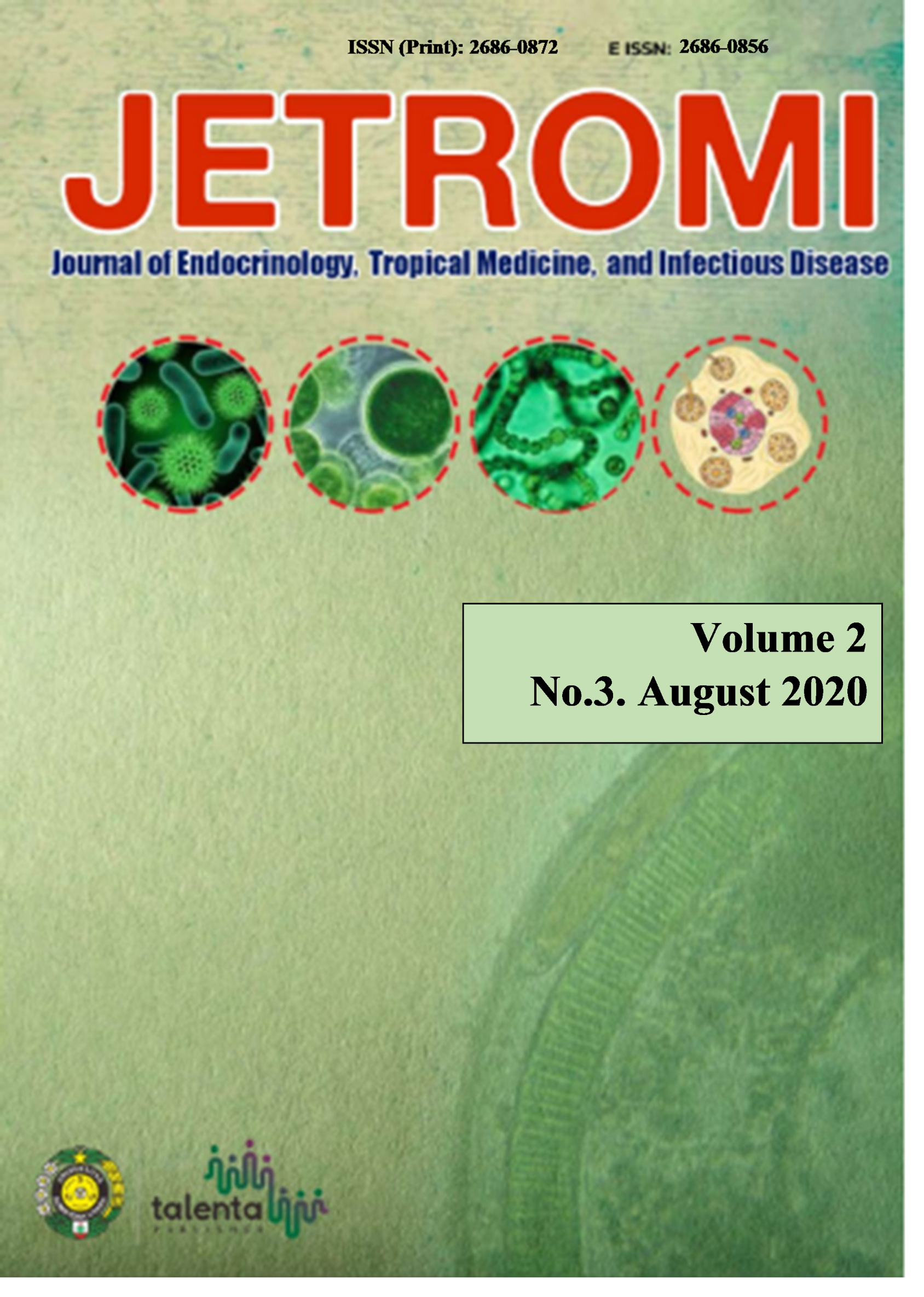Effect of Salam leaf extract (Syzygium Polyanthum) to serum IL-10 levels on Acute Coronary Syndrome in Wistar Strain Mice Model
DOI:
https://doi.org/10.32734/jetromi.v2i3.4296Keywords:
Acute Coronary Syndrome, Bay Leaf, Interleukin-10, Syzygium polyanthumAbstract
Background Coronary Heart Disease (CHD) is one of the leading causes of death in developed and developing countries.  Syzygium polyanthum leaf (daun salam) are reported to have anti-inflammatory, antioxidant, antidiabetic, antimicrobial, antihypertensive, antitumor, antidiarrheal, acetylcholinesterase inhibition, and lipase inhibitory activity. The purpose of this study was to prove the effect of bay leaf extract (Syzygium polyanthum) on serum interleukin (IL)-10 levels in the heart of Wistar Strain Mice Model of Acute Coronary Syndrome (ACS). Methods This is an experimental study to compare the IL-10 level in 32 ACS mice which were divided into 8 groups. Serum IL-10 values were collected and analyzed according to the corresponding group with and without bay leaf extract administration, on day 1,4,7, and 14. Result: There is an IL-10 value increasing with the duration of examination following the onset of ACS induction. The highest average IL-10 value was found on the 14th day, in the two groups. On the same day, it was seen that the treatment group had a higher IL-10 value compared to the control group (p<0.001). The result showed that the concentration of IL-10 was significantly greater among the treatment group, which  reveal the potential benefit of bay leaf extract in patients with ACS. Conclusion: There was found a significant difference of serum IL-10 between Wistar Strain Mice Model of ACS that was given S. polyanthum leaf extracts. S. polyanthum leaf extract has quite extensive benefits in the cardiovascular system.
Downloads
Downloads
Published
Issue
Section
License
Copyright (c) 2020 Journal of Endocrinology, Tropical Medicine, and Infectiouse Disease (JETROMI)

This work is licensed under a Creative Commons Attribution-NonCommercial-ShareAlike 4.0 International License.
The Authors submitting a manuscript do so on the understanding that if accepted for publication, copyright of the article shall be assigned to Journal of Endocrinology, Tropical Medicine and Infectious Diseases (JETROMI).
Copyright encompasses exclusive rights to reproduce and deliver the article in all form and media. The reproduction of any part of this journal, its storage in databases and its transmission by any form or media, will be allowed only with a written permission from Journal of Endocrinology, Tropical Medicine and Infectious Diseases (JETROMI).








